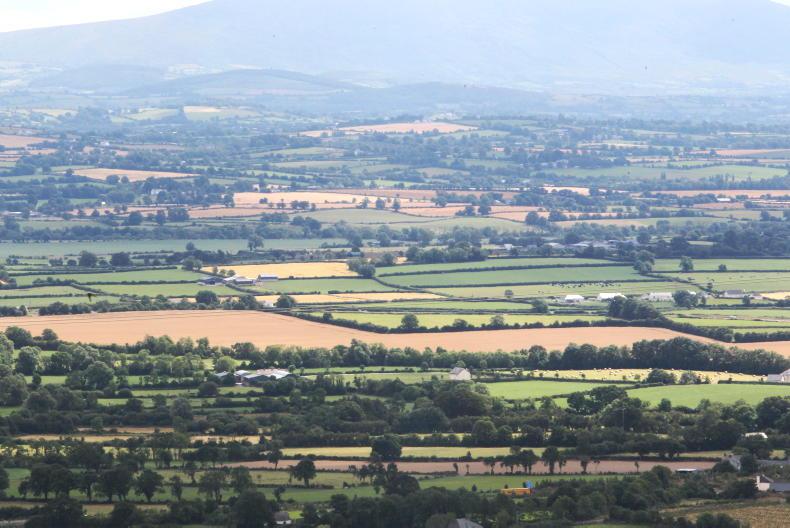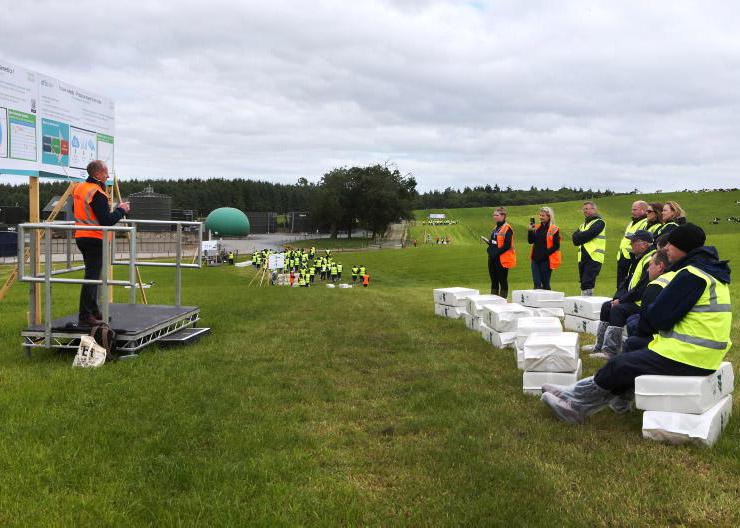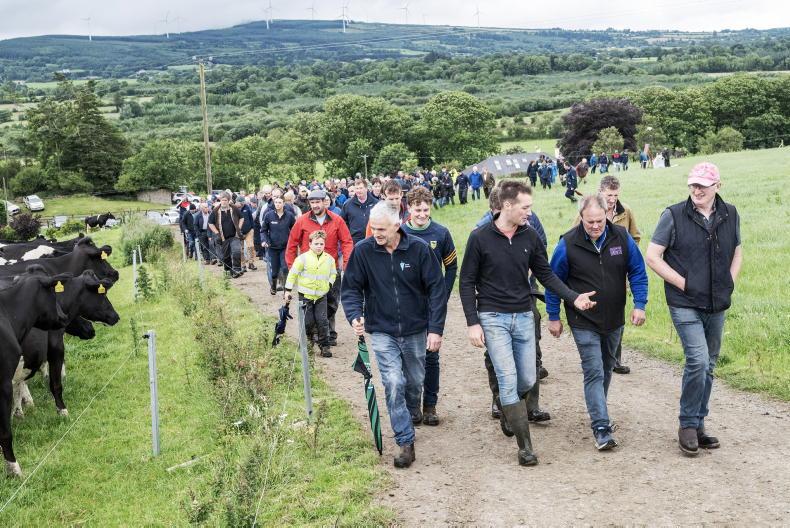In Ireland, methane from livestock is classed the same as all other greenhouse gases.
Last month, the New Zealand government announced it will remove ‘agriculture’ from the New Zealand Emissions Trading Scheme. Essentially, they want to treat methane from livestock differently.
The trading scheme is a tool to allow New Zealand meet new climate regulations, but also allow the measurement of gases, establish price floors and to allow for forestry offsetting and auctioning of emission units.
It’s complicated, but really it’s a tool to encourage New Zealand businesses and consumers to adopt more climate friendly actions.
So why the change of heart to pull farming out now when it has been in there for over 20 years? A new government in New Zealand has said there needs to be a fresh start and a fresh look at how their grass-based farming is treated.
Review panel
They have agreed to establish an independent panel to review New Zealand’s methane science and targets. The relatively new government is delivering on its election commitment to take agriculture out and will establish a new Pastoral Sector Group to constructively tackle methane from livestock.
New Zealand Agriculture Minister Todd McClay said last month that the government is committed to meeting its climate change obligations without shutting down Kiwi farms.
“It doesn’t make sense to send jobs and production overseas, while less carbon-efficient countries produce the food the world needs. That is why we are focused on finding practical tools and technology for our farmers to reduce their emissions in a way that won’t reduce production or exports.”
Kerryman Dr John Roche, New Zealand’s government’s chief science adviser, outlines what’s happening with methane in New Zealand
New Zealand’s Ministry for Primary Industries (MPI) is committed to supporting the country’s farmers to sustainably reduce agricultural emissions.
More than NZ$400m (€226m) is being invested over the next four years to strengthen research and development in getting new tools and technology to reduce on-farm emissions to farmers quicker.
That’s in addition to the NZ$54m (€30m) spent to date since November 2022.
In November 2022, the Centre for Climate Action on Agricultural Emissions was launched. It is tasked with accelerating the research, development, and commercialisation of tools and technology to reduce emissions.
The centre includes two key components – AgriZeroNZ and the New Zealand Greenhouse Gas Research Centre (NZAGRC).
Joint venture
AgriZeroNZ is a 50/50 public-private joint venture to help pasture-based farmers in New Zealand reduce their agricultural emissions.
The government is partnering with processors and banks, including a2 Milk Company, ANZ Bank New Zealand, ANZCO, ASB Bank, Bank of New Zealand (BNZ), Fonterra, Rabobank, Ravensdown, Silver Fern Farms, and Synlait. A total of NZ$191m (€108m) has been committed to AgriZeroNZ by industry and government over its first four years.
It has already invested in a number of major projects. They include investment for a methane inhibiting bolus, novel probiotics, New Zealand research for a methane vaccine and inhibitor, and the construction of a greenhouse gas testing facility.
The scaled-up funding will grow our total investment in its domestic research and development to NZ$149.6m (€84m) over the same period.
It aims to have two to three emissions reduction tools in widespread use by 2030.
New Zealand’s new coalition government has signalled its commitment to introduce a fair and sustainable pricing system for on-farm emissions by 2030.
Part of the more than NZ$400m (€226m) investment includes scaling up funding for the NZAGRC, where an additional NZ$50.5m (€28.3m) will be spent over the next five years identifying and funding critical research and development.
The scaled-up funding will grow our total investment in its domestic research and development to NZ$149.6m (€84m) over the same period.
The centre is focused on developing fit-for-purpose and cost-effective technologies and practices for New Zealand farmers and growers to lower agricultural emissions.
The scaled-up investment will help accelerate progress on breeding low emissions cattle, accelerate work on methane and nitrous oxide inhibitors, scale-up research on developing a methane vaccine with AgriZeroNZ, and increase collaboration with global researchers.
Within the Centre for Climate Action on Agricultural Emissions, the NZAGRC plays an important role in identifying and funding critical research and development alongside AgriZeroNZ’s venture investment and commercialisation efforts.
New Zealand farmers are some of the world’s most carbon-efficient food producers. These investments will sharpen our competitive edge and increase export value. They show our support for farmers while ensuring New Zealand meets its international climate change obligations.
One of the initiatives we have implemented to support farmers right now is Science for Farmers.
It’s a collaboration between MPI and industry partners to help bridge the gap between the latest scientific research and innovation and its practical application on-farm.
In Ireland, methane from livestock is classed the same as all other greenhouse gases.
Last month, the New Zealand government announced it will remove ‘agriculture’ from the New Zealand Emissions Trading Scheme. Essentially, they want to treat methane from livestock differently.
The trading scheme is a tool to allow New Zealand meet new climate regulations, but also allow the measurement of gases, establish price floors and to allow for forestry offsetting and auctioning of emission units.
It’s complicated, but really it’s a tool to encourage New Zealand businesses and consumers to adopt more climate friendly actions.
So why the change of heart to pull farming out now when it has been in there for over 20 years? A new government in New Zealand has said there needs to be a fresh start and a fresh look at how their grass-based farming is treated.
Review panel
They have agreed to establish an independent panel to review New Zealand’s methane science and targets. The relatively new government is delivering on its election commitment to take agriculture out and will establish a new Pastoral Sector Group to constructively tackle methane from livestock.
New Zealand Agriculture Minister Todd McClay said last month that the government is committed to meeting its climate change obligations without shutting down Kiwi farms.
“It doesn’t make sense to send jobs and production overseas, while less carbon-efficient countries produce the food the world needs. That is why we are focused on finding practical tools and technology for our farmers to reduce their emissions in a way that won’t reduce production or exports.”
Kerryman Dr John Roche, New Zealand’s government’s chief science adviser, outlines what’s happening with methane in New Zealand
New Zealand’s Ministry for Primary Industries (MPI) is committed to supporting the country’s farmers to sustainably reduce agricultural emissions.
More than NZ$400m (€226m) is being invested over the next four years to strengthen research and development in getting new tools and technology to reduce on-farm emissions to farmers quicker.
That’s in addition to the NZ$54m (€30m) spent to date since November 2022.
In November 2022, the Centre for Climate Action on Agricultural Emissions was launched. It is tasked with accelerating the research, development, and commercialisation of tools and technology to reduce emissions.
The centre includes two key components – AgriZeroNZ and the New Zealand Greenhouse Gas Research Centre (NZAGRC).
Joint venture
AgriZeroNZ is a 50/50 public-private joint venture to help pasture-based farmers in New Zealand reduce their agricultural emissions.
The government is partnering with processors and banks, including a2 Milk Company, ANZ Bank New Zealand, ANZCO, ASB Bank, Bank of New Zealand (BNZ), Fonterra, Rabobank, Ravensdown, Silver Fern Farms, and Synlait. A total of NZ$191m (€108m) has been committed to AgriZeroNZ by industry and government over its first four years.
It has already invested in a number of major projects. They include investment for a methane inhibiting bolus, novel probiotics, New Zealand research for a methane vaccine and inhibitor, and the construction of a greenhouse gas testing facility.
The scaled-up funding will grow our total investment in its domestic research and development to NZ$149.6m (€84m) over the same period.
It aims to have two to three emissions reduction tools in widespread use by 2030.
New Zealand’s new coalition government has signalled its commitment to introduce a fair and sustainable pricing system for on-farm emissions by 2030.
Part of the more than NZ$400m (€226m) investment includes scaling up funding for the NZAGRC, where an additional NZ$50.5m (€28.3m) will be spent over the next five years identifying and funding critical research and development.
The scaled-up funding will grow our total investment in its domestic research and development to NZ$149.6m (€84m) over the same period.
The centre is focused on developing fit-for-purpose and cost-effective technologies and practices for New Zealand farmers and growers to lower agricultural emissions.
The scaled-up investment will help accelerate progress on breeding low emissions cattle, accelerate work on methane and nitrous oxide inhibitors, scale-up research on developing a methane vaccine with AgriZeroNZ, and increase collaboration with global researchers.
Within the Centre for Climate Action on Agricultural Emissions, the NZAGRC plays an important role in identifying and funding critical research and development alongside AgriZeroNZ’s venture investment and commercialisation efforts.
New Zealand farmers are some of the world’s most carbon-efficient food producers. These investments will sharpen our competitive edge and increase export value. They show our support for farmers while ensuring New Zealand meets its international climate change obligations.
One of the initiatives we have implemented to support farmers right now is Science for Farmers.
It’s a collaboration between MPI and industry partners to help bridge the gap between the latest scientific research and innovation and its practical application on-farm.









SHARING OPTIONS